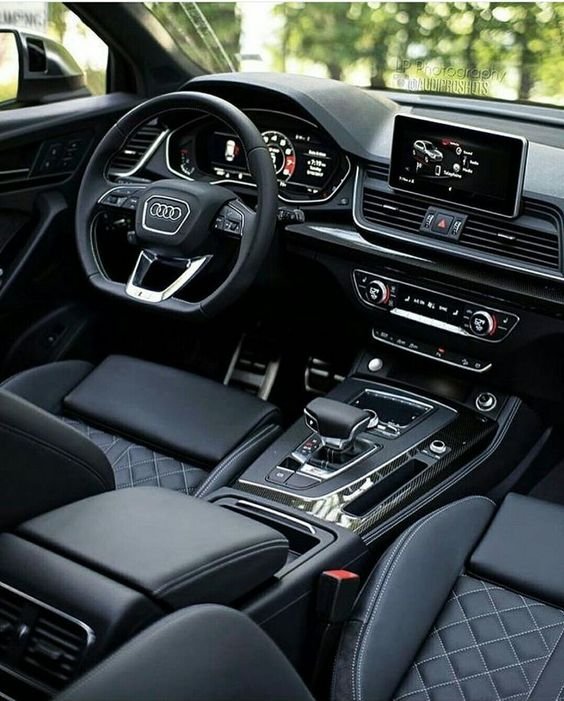
Automobile engineers are the unsung heroes behind the seamless performance of modern vehicles. Their deep understanding of automotive mechanics, materials, and design principles allows them to see beyond the surface and understand the intricate workings of cars. While many car owners believe they know the basics of vehicle maintenance, there are several secrets that only those with an engineering background truly grasp. Here, we delve into some of these lesser-known insights that can significantly impact your car’s longevity, performance, and safety.
1. Frequent Oil Changes Are Unnecessary
One of the most persistent myths in car maintenance is the need for frequent oil changes. Traditionally, car owners have been advised to change their oil every 3,000 to 5,000 miles. However, advancements in engine technology and oil formulations have rendered this advice outdated.
Engine Technology and Oil Formulations
Modern engines are designed with tighter tolerances and improved materials that reduce wear and tear. Additionally, synthetic oils have superior stability and durability compared to their conventional counterparts. These oils are engineered to withstand higher temperatures and longer durations without breaking down. As a result, oil change intervals can be safely extended.
Realistic Oil Change Intervals
Automobile engineers understand that oil change intervals of up to 25,000 miles are sufficient for modern vehicles. This extended interval is supported by rigorous testing and real-world data. By adhering to the manufacturer’s recommendations found in the owner’s manual, drivers can ensure their engine remains protected without the unnecessary expense and environmental impact of frequent oil changes.
2. New Cars Need No Additives – Ever
The automotive aftermarket is flooded with additives promising to enhance engine performance, clean fuel systems, and improve fuel economy. However, automobile engineers are often skeptical of these claims.
Engine and Fuel System Design
Modern engines and fuel systems are meticulously engineered to perform optimally with standard fuels and lubricants. Manufacturers invest significant resources in developing engines that meet stringent performance, emissions, and durability standards. These systems are designed to operate without the need for additional additives.
Potential Risks of Additives
Using aftermarket additives can sometimes do more harm than good. Certain additives may contain chemicals that can interfere with the engine’s normal operation, potentially leading to damage or reduced efficiency. Engineers recommend relying on the quality of fuel and oil specified by the manufacturer, as these are formulated to meet the precise requirements of the vehicle.
3. Regular Unleaded Fuel is Adequate for Most Cars
There is a common belief that premium fuels are necessary to achieve optimal performance and efficiency. However, for the majority of vehicles, regular unleaded fuel is entirely sufficient.
Engine Compression and Fuel Requirements
Most modern engines are designed to run efficiently on regular unleaded fuel. The key factor determining fuel requirements is the engine’s compression ratio. Engines with high compression ratios, typically found in high-performance sports cars, may benefit from premium fuels to prevent knocking and achieve peak performance. However, for normal driving conditions, even these engines can run adequately on regular fuel.
Cost Efficiency
Using regular unleaded fuel can result in significant cost savings over the life of the vehicle. Automobile engineers emphasize that unless your vehicle explicitly requires premium fuel (as stated in the owner’s manual), there is no tangible benefit to using it.
4. Importance of Changing Brake Fluid
Brake fluid is an often-overlooked component of vehicle maintenance, yet it plays a critical role in ensuring the safety and reliability of the braking system.
Hygroscopic Nature of Brake Fluid
Brake fluid is hygroscopic, meaning it absorbs moisture from the air over time. This moisture can significantly degrade the performance of the brake fluid, leading to corrosion of brake components and reduced braking efficiency. In severe cases, it can cause brake failure.
Regular Maintenance
Automobile engineers recommend changing the brake fluid at regular intervals, typically every two to three years, or as specified in the owner’s manual. This maintenance ensures the brake system remains in optimal condition, providing reliable stopping power and preventing costly repairs.
5. Tire Pressure: The Unsung Hero of Ride Quality and Safety
Tire pressure is a critical factor in the overall performance, safety, and comfort of a vehicle. However, it is often neglected by car owners.
Impact on Ride Comfort and Handling
Correct tire pressure ensures that the tires have the optimal contact patch with the road, providing the best balance between ride comfort and handling. Over-inflated tires can lead to a harsh ride and reduced traction, while under-inflated tires can cause poor handling and increased wear.
Manufacturer Recommendations
Automobile engineers stress the importance of using the tire pressure recommended in the owner’s manual, not the maximum pressure listed on the tire sidewall. The manufacturer’s recommendation is based on extensive testing to achieve the best balance of performance, safety, and tire longevity.
6. The Futility of Modifications
Car enthusiasts often seek to modify their vehicles with aftermarket parts and devices, hoping to enhance performance, fuel efficiency, or aesthetics. However, many of these modifications offer little to no real benefit and can sometimes be detrimental.
Engineered for Optimal Performance
Modern cars are designed and tested to perform optimally with the components they come with from the factory. Engineers consider a wide range of factors, including safety, reliability, and efficiency, when designing these systems. Adding aftermarket devices, such as fuel savers or performance chips, can disrupt these finely tuned systems.
The Myth of Easy Gains
For example, if a simple device could consistently provide significant fuel economy improvements, manufacturers would have already integrated it into their designs to meet stringent fuel efficiency regulations. Engineers know that most modifications are either ineffective or provide marginal benefits that do not justify the cost or risk.
7. The Misunderstood Importance of Engine Break-In
When purchasing a new car, many people are unaware of the proper engine break-in procedures, which can affect the long-term performance and durability of the engine.
Proper Break-In Techniques
Engineers recommend a break-in period of around 1,000 miles, during which the engine should be subjected to varying speeds and loads, avoiding high RPMs and heavy loads. This process allows the engine components to wear in properly, ensuring optimal sealing and performance.
Ignoring Break-In Can Lead to Issues
Failing to follow proper break-in procedures can result in incomplete seating of piston rings, leading to increased oil consumption and reduced engine life. Although modern manufacturing processes have reduced the critical nature of break-ins, engineers still emphasize their importance.
8. Misconceptions About Car Battery Maintenance
Car batteries are a critical component of a vehicle’s electrical system, yet their maintenance is often misunderstood.
Battery Lifespan and Maintenance
Automobile engineers understand that car batteries typically last between three to five years, depending on usage and environmental conditions. Regular maintenance, such as keeping the terminals clean and ensuring the battery is securely mounted, can help extend battery life.
Signs of a Failing Battery
Engineers also know the early signs of a failing battery, such as slow engine cranking and dimming headlights. Proactively addressing these signs can prevent unexpected breakdowns and ensure reliable vehicle operation.
9. Understanding Cooling System Maintenance
The cooling system is essential for preventing engine overheating and maintaining optimal operating temperatures. However, it requires regular maintenance to function properly.
Coolant and Cooling System Checks
Engineers recommend checking the coolant level regularly and topping it off as needed. Additionally, the coolant should be replaced according to the manufacturer’s schedule to prevent corrosion and buildup within the cooling system.
Importance of Radiator and Hoses
Inspecting the radiator and hoses for leaks or damage is another critical maintenance task. Engineers know that a well-maintained cooling system is crucial for engine longevity and performance.
10. The Real Impact of Weight on Fuel Economy
Many drivers are unaware of how vehicle weight affects fuel economy. Engineers understand that reducing unnecessary weight can significantly improve fuel efficiency.
Simple Ways to Reduce Weight
Removing unnecessary items from the trunk and interior can reduce the vehicle’s overall weight, leading to better fuel economy. Engineers recommend carrying only essential items to optimize fuel efficiency.
Impact of Aftermarket Additions
Adding aftermarket accessories, such as roof racks or heavy audio systems, can increase the vehicle’s weight and reduce fuel efficiency. Engineers advise considering the trade-offs before making such modifications.
Automobile engineers possess a wealth of knowledge that can significantly enhance the ownership experience of any vehicle. From understanding the true intervals for oil changes to the importance of proper tire pressure, these insights help ensure that cars operate efficiently, safely, and reliably. By following the recommendations of these experts, car owners can avoid common pitfalls, save money on unnecessary maintenance, and enjoy a better driving experience.
ALSO READ: The Future of Luxury Car Rentals







